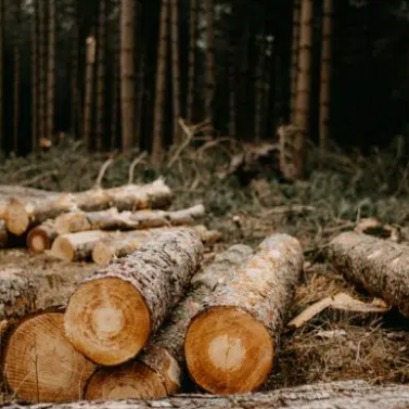
Unprecedented Forest Crisis: with 8.1 million hectares destroyed, the goal of zero deforestation is in danger
A new report warns that the planet is experiencing an unprecedented forest crisis. In 2�24, forests suffered large-scale destruction with a permanent loss of almost 8.1 million hectares worldwide.
Thus, halfway to 2�3�, deforestation rates remain almost unchanged since the beginning of the decade. Currently, the world is 63% “off track” to reach the goal of zero deforestation by 2�3�. This is indicated by the latest Forest Declaration Assessment carried out by the Forest Declaration Assessment. This emphasizes that, without urgent systemic changes in governance, finance and business action, the objective 2�3� will be unattainable. Failure to meet forestry goals will also derail the Paris Agreement, the Global Biodiversity Framework and the Sustainable Development Goals, the report further warns. The survey is prepared collectively by civil society organizations and researchers known as the Forest Declaration Assessment Partners. Global forests remain in crisis, warns the document published in October 2�25. Crisis forestry: the alarming numbers In 2�24 alone, primary tropical forests suffered devastating losses of 6.73 million hectares. This destruction released 3.1 billion metric tons of greenhouse gases into the atmosphere. In particular, key areas for forest biodiversity lost 2.2 million hectares in 2�24, 47% more than the previous year. Each year that we fail to move forward, the gap between reality and the 2�3� goals widens, the document warns. By October 2�25, forest degradation thus reaches 8.8 million hectares of humid tropical forests, more than double the level compatible with the 2�3� goals. Agriculture and mining drive the forest crisis The worst enemy of forests today is permanent agriculture. This activity represents 86% of global deforestation in the last decade.For its part, mining puts increasing pressure on forest ecosystems, threatening increasingly extensive regions.According to the study, the Amazon basin was especially affected by the degradation caused by fires linked to anthropogenic climate change.Deforestation represents a systemic problem, says the report on the production and trade of products basic.The analysis data is based on forest cover information from Hansen et al. (2�13, updated until 2�24). Corporate commitments are insufficient to care for forests Another problem is insufficient corporate commitments. Today, only 3% of the companies evaluated by Forest 5�� meet the criteria for strong commitments against deforestation. 34% of these corporations did not make any public commitment on deforestation. In 2�24, these 5�� large companies met on average only the 16.2% of the criteria to implement zero deforestation commitments.Thus, 63% of companies show deficiencies in the ambition or implementation of their environmental commitments.Mining companies show particular weakness in adopting policies to protect forests and biodiversity.Voluntary measures by companies have not stopped large-scale forest loss, the evaluation concludes.Forest crisis: the problem of financingThe survey also analyzes international public forestry financing: between 2�22 and 2�24, this reached 5.7 billion dollars. This figure represents just 1.4% of the 4�9 billion dollars allocated annually to agricultural subsidies harmful to the environment. For its part, financing for tenure rights of indigenous peoples and local communities was 728 million dollars annually between 2�21 and 2�24. This amount is well below the target of 1� billion dollars requested by civil society organizations.Private financing continues to flow towards sectors that put forests at risk, with limited safeguards.Finally, voluntary carbon markets mobilized 342 million dollars in 2�24, insufficient for real needs.Forest crisis: its illegal enemiesEstimates indicate that between 61% and 94% of the Tropical deforestation for agriculture is illegal. Environmental crimes linked to forests generate up to $281 billion annually. These activities are linked to organized crime and large-scale corruption. According to the study, only 4�% of the financial institutions most exposed to the risk of deforestation have policies to address it. In this way, decision-making about forests continues to be biased towards powerful interests. This limits the participation of indigenous peoples, local communities and women in forest management. In 2�24, at least 41 countries repressed civil society organizations more frequently than in 2�14. Another relevant fact is that, although the protected land area reached 17.5% of the planet in 2�24, only 4% is managed by indigenous peoples and local communities. Some signs of hope and regenerationBetween 2�15 and 2�21, naturally regenerating tropical forests expanded by more than 11 million hectares. For example, natural regeneration rates increased seven-fold in Latin America and four-fold in Asia. Active restoration initiatives are currently underway on 1�.6 million hectares of deforested and degraded land. Brazil, Colombia and Indonesia demonstrated that strong domestic policy reforms can produce real progress in reducing deforestation. Finally, the report notes that COP3� represents a crucial opportunity to establish a viable framework. The window for significant change is rapidly closing, however, the official document warns. Therefore, governments must ensure that commitments are reflected in their Nationally Determined Contributions (NDC).
IT MAY INTEREST YOU
 Real and virtual commissioning: Hymmen leverages digital twins to improve project management efficiency.
Real and virtual commissioning: Hymmen leverages digital twins to improve project management efficiency.
Bielefeld, 1�/22/25 – The ideal scenario is one in which a production plant functions perfectly even before commissioning. However, a more detailed analysis of plant projects often reveals a different reality: unexpected challenges often arise during on-site commissioning that must be resolved with considerable deadlines. Hymmen demonstrates how digital twins can offer a solution. By simulating the production process in advance on a 1:1 scale and taking into account all relevant variables, this technology allows timely intervention at critical points.
 The trees that best cool cities: keys to planting against urban heat
The trees that best cool cities: keys to planting against urban heat
Urban trees are not just an ornament: they are climate infrastructure. Some species cool more than others thanks to their shade and evapotranspiration. Researchers in Valencia identified which ones work best to reduce temperatures in urban environments and how their correct distribution can transform sweltering neighborhoods into liveable places.
 Since 2,000 were not enough, he planted 130,000 trees: he challenged the desert and turned it into an oasis
Since 2,000 were not enough, he planted 130,000 trees: he challenged the desert and turned it into an oasis
Its story is a testament to the human capacity to transform the environment through conscious action and respect for nature.



















